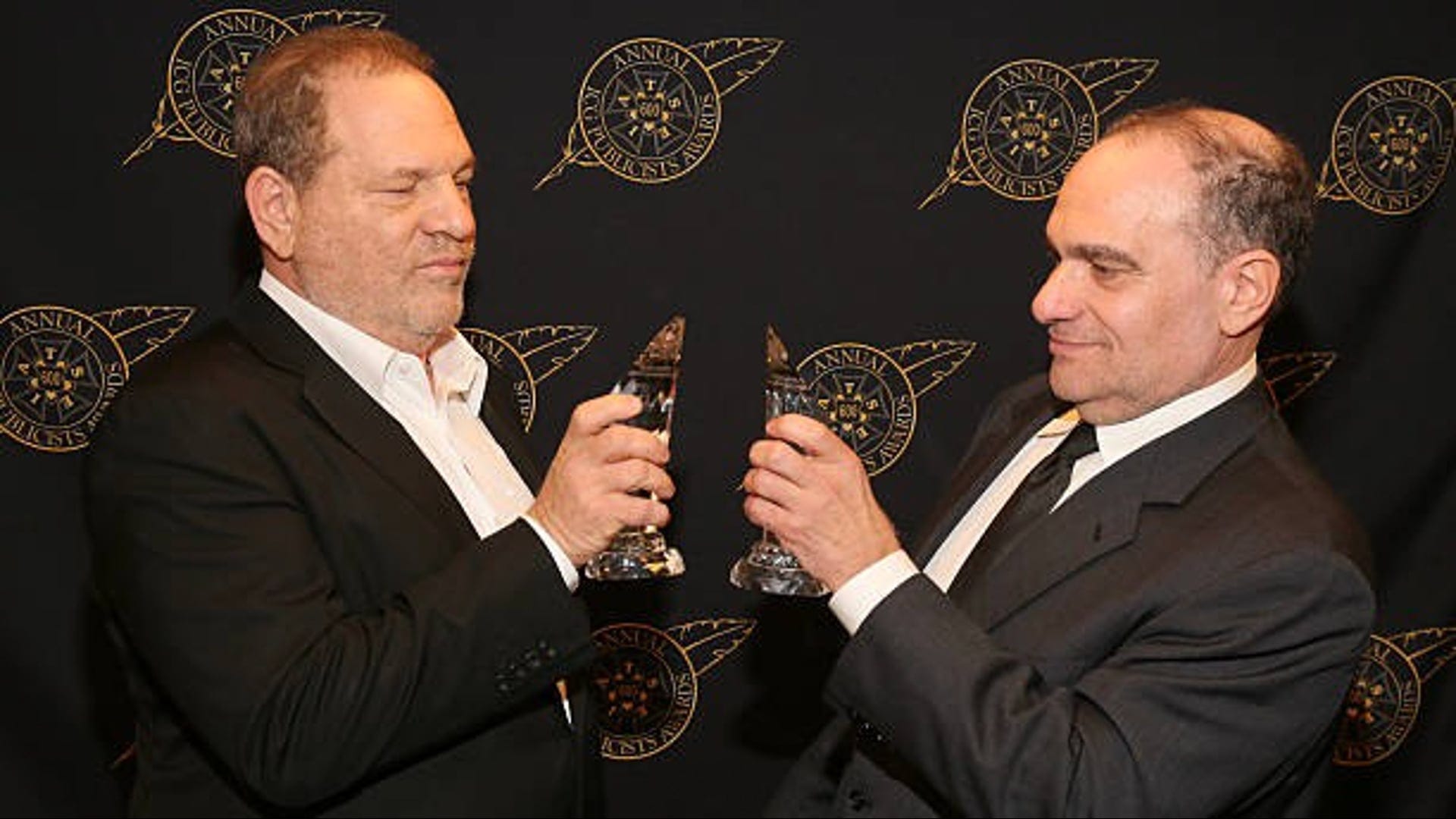Harvey Weinstein rape retrial: Identity of new accuser revealed in opening statements

NEW YORK − Harvey Weinstein's retrial on rape and sexual assault charges got underway on April 23, as a prosecutor and a defense lawyer offered starkly contrasting explanations for the disgraced movie mogul's encounters with women who hoped to make it big in Hollywood.
Prosecutor Shannon Lucey told jurors in Manhattan court that Weinstein exploited his status as a Hollywood gatekeeper and power broker to prey upon and sexually abuse women, then assured their silence by holding their careers hostage.
"Harvey Weinstein had enormous control over those working in TV and film because he decided who was in and who was out," Lucey said in her opening statement. "He had all the power. They had none."
Weinstein, 73, dressed in a dark suit and navy tie, listened after being brought into the courtroom in a wheelchair. The former filmmaker has been experiencing a variety of health problems as of late.
Prosecutors have portrayed Weinstein as a serial predator who promised career advancement in Hollywood to women, only to then coax them into hotel rooms and private apartments where he overpowered and attacked them.
Weinstein's lawyer Arthur Aidala rejected that characterization, saying the Oscar-winning producer had "mutually beneficial" relationships with his accusers, who ended up with auditions and other show business opportunities.
"They realized very quickly: Harvey Weinstein, he's got the key to that room where they all want to go," Aidala said in his opening statement, referring to career advancement.
Why is Harvey Weinstein going to trial again?
Weinstein's retrial comes before a Manhattan jury a year after New York's highest state appeals court overturned the movie mogul's conviction.
Weinstein faces one rape count and two criminal sexual act counts. The once-powerful Hollywood producer has pleaded not guilty and denied ever assaulting anyone or having nonconsensual sex.
At the center of the retrial are three women, with two alleging that Weinstein forcibly performed oral sex on them in 2006 and another who said he raped her in 2013. The retrial began on April 15 with jury selection.
The legal redo, a proceeding presided over by Superior Court Justice Curtis Farber, is expected to last roughly six weeks and will largely mimic Weinstein's original state trial. All 12 jurors must vote unanimously to convict Weinstein.
His original trial conviction was a capstone moment for the #MeToo movement, which saw women in the entertainment industry emerge with claims of sexual misconduct perpetrated by powerful men in media, politics and other spheres.
Identity of new Harvey Weinstein accuser revealed
Manhattan District Attorney Alvin Bragg's office is again accusing Weinstein of sexually assaulting former production assistant Miriam Haley in 2006 and raping aspiring actress Jessica Mann in 2013, charges he was convicted of in the first trial.
For the retrial, prosecutors added a new charge that Weinstein assaulted another woman in Manhattan in 2006. Lucey said that woman is Kaja Sokola, from Poland, who claims Weinstein assaulted her when she was a 16-year-old aspiring actress.
Lindsay Goldbrum, a lawyer representing Sokola, in a statement said the retrial "will test how far we’ve advanced in our collective understanding of sexual assault, power dynamics, and what it means to be a survivor."
What was the original verdict in Harvey Weinstein #MeToo trial?
A New York jury found Weinstein guilty of rape and sexual assault in 2020, and he was sentenced to 23 years in prison. A state appeals court threw out the conviction in April 2024 and ordered a new trial, finding that women who accused Weinstein of assaults that were not part of the charges against him should not have been allowed to testify.
More than 100 women, including famous actresses, accused Weinstein of misconduct, and the allegations against him were a focal point of #MeToo. Since the #MeToo movement snowballed in 2017 with sexual assault allegations against the "Shakespeare in Love" producer, Weinstein has repeatedly denied all claims that he engaged in nonconsensual sex acts.
Harvey Weinstein health issues
In September 2024, Weinstein was rushed to a hospital and underwent emergency heart surgery. The episode was one of several health scares while he was held in New York City's Rikers Island jail, where his representatives have said he was receiving inadequate medical care.
In the months leading up to his retrial, the Miramax co-founder − who has yet to serve a 16-year prison sentence stemming from his 2022 California rape conviction − urged a judge in New York to start his trial sooner, citing his health concerns.
Is Harvey Weinstein still in jail?
Weinstein is not currently in jail. Weinstein scored a win last week when a judge ruled in his favor after transferring in and out of the hospital several times while serving his jail sentence.
A New York judge on April 17 ruled Weinstein can be transferred from Rikers Island to Bellevue Hospital's prison ward in Manhattan as his retrial moves forward in criminal court. In a statement to Paste BN on April 18, Weinstein's lawyer Imran H. Ansari addressed the news.
"Harvey Weinstein is pleased with the court's order directing the city to transfer him from Rikers Island to Bellevue Hospital so he can receive the medical treatment he needs as he begins his trial. It is without question that Rikers Island is the prime example of a deficient and dangerous prison," Ansari said in the statement.
His lawyers added: "Mr. Weinstein has suffered tremendously within its walls and no human in his medical condition, no matter what they are accused of, should be treated so inhumanely and without any regard to the protections of our constitution."
Contributing: Reuters